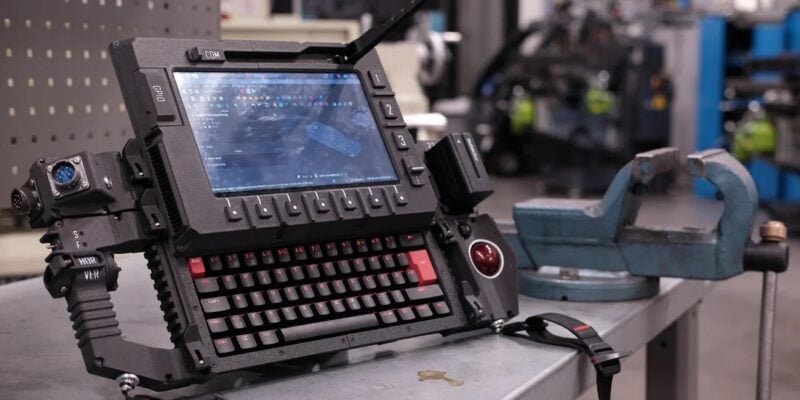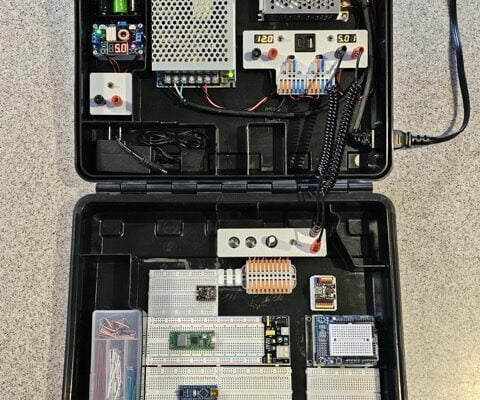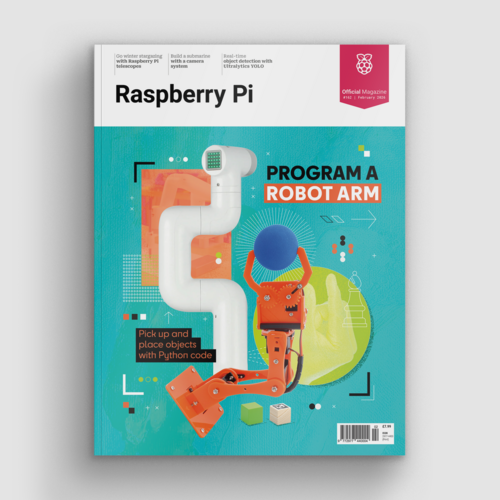SciBite: Raspberry Pi cluster powers next-gen medical research tool
By Russell Barnes. Posted

Semantic search meets affordable hardware
Program a robot arm, with Raspberry Pi and Python code
UK-based SciBite recently demonstrated its cutting-edge biomedical semantic search tools on a humble Raspberry Pi cluster.
The demonstration was part of SciBite’s setup for the Bio-IT World show in Boston, USA, where SciBite won an award for Best of Show in the Analysis and Data Computer category.
“The show went really well,” SciBite marketing manager Monica Kulkarni tells us, with a “great reception for the Pis. People came to the stand just to see the demo.
“The great thing about using the Pi cluster,” Monica continues, “was that when the internet connection went down in the exhibition hall, we could carry on demonstrating, as the Pis ran on their own local network.”
SciBite went on to win a Best of Show award at Bio IT World 2017:
We chose Raspberry Pi, not only because their machines perfectly display the flexibility and adaptability of our solutions but also because of the ethos behind the Raspberry Pi Foundation. Their actions to democratise the digital world and bring coding to the next generation are inspirational, and we’re proud to support their work.

SciBite: creating semantic search tools with Raspberry Pi
‘Semantic search’ is a method of information gathering far in advance of using a standard search engine, Monica explains. “Controlled scientific vocabularies” allow the TERMite semantic search tool to understand that “for any given concept, there may be multiple synonyms for a singular term. Schilder syndrome, Alpers’ disease, Christensen disorder, Encephalitis periaxialis are all the same disease.” The “tens of millions of synonyms provide the depth of knowledge required to understand biological text.”
However, ambiguity is also a problem, with a single word having many meanings, and therefore producing either irrelevant or misleading search results. “Contextual disambiguation is critical to ensuring accurate insight,” confirms Monica.
TERMite, and the DOCstore front-end that accesses it, is platform-agnostic (it’s a Java app with a browser-based UI), but developing for the Pi wasn’t just for fun. Squeezing the TERMite vocabularies to run on the Pi’s 1GB of RAM was a challenge, but “some of the techniques we used to compress and efficiently scan data … are already finding their way into next release of TERMite.”
Win! One of 10 Raspberry Pi 3 & Official Case signed by Eben Upton. Click here to enter

Russell runs Raspberry Pi Press, which includes The MagPi, Hello World, HackSpace magazine, and book projects. He’s a massive sci-fi bore.
Subscribe to Raspberry Pi Official Magazine
Save up to 37% off the cover price and get a FREE Raspberry Pi Pico 2 W with a subscription to Raspberry Pi Official Magazine.
More articles

Cyberdeck
We can’t imagine the looks you’d get using this machine on your daily commute, but apparently the maker of this wonderful machine does just that.
Read more →

Programming station
Spot the microcontroller: we can see an Arduino Uno, Arduino Nano, a pair of ESP32 boards, and a Raspberry Pi Pico, all waiting to be played with.
Read more →

Solder fume extractor
This device has adjustable fan speeds and light levels, courtesy of Raspberry Pi Pico.
Read more →
